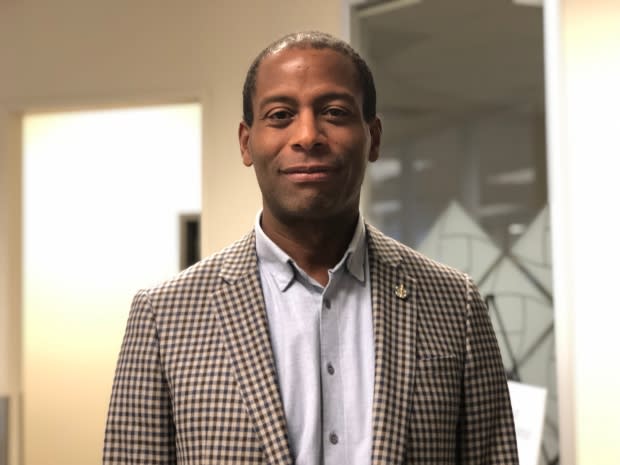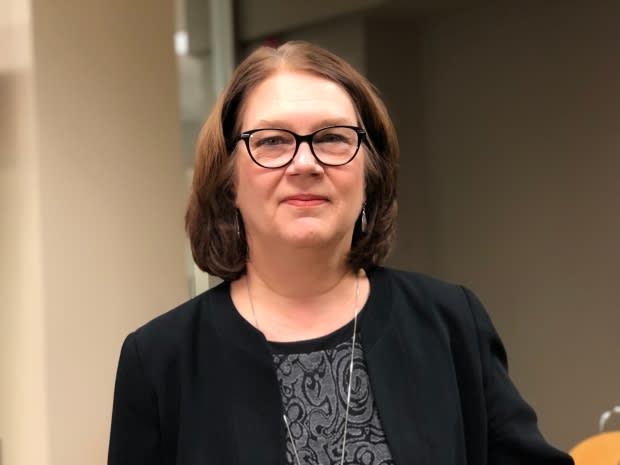Black public servants look to shatter their own ceiling
Black federal government workers gathered in Ottawa Wednesday to discuss barriers to their advancement in the public service, and how to overcome them.
The Federal Black Employee Caucus (FBEC) hosted its inaugural national symposium to discuss ongoing hurdles including harassment, discrimination and under-representation as, well as the importance of collecting disaggregated employment data.
"The hard data allows us to be able to really get past what some people consider to be the anecdotal … and actually marry that up with sort of hard numbers," symposium organizer Richard Sharpe told host Robyn Bresnahan on Ottawa Morning.
"Currently, our government collects data that's specific to visible minorities, but that's quite a large group. We're asking for the government to work with us to collect data on job movement, harassment, discrimination, and see what's happening particularly to the black population."
'You don't see a lot of black faces'
Treasury Board President Jane Philpott said the government is aware that bias in the federal public service is preventing black workers from being promoted to the bureaucracy's highest levels.

"There are are systemic barriers for black employees in terms of getting jobs, advancing in their careers and being underrepresented," she said.
"That's an area that we need to look at. What about those high levels of senior executives within the federal government? You don't see a lot of black faces there."
Representation matters
Greg Fergus, the Liberal MP for Hull-Aylmer, said although blacks are proportionally represented in the public service, they generally don't occupy top jobs.
"They're mostly grouped at the bottom level of the public service," he said.
Fergus believes data is needed to understand where the gaps to advancement exist if real solutions are to be found.
"It's not enough just to talk about the visible minorities [working in government]. Now we have to start disaggregating the data to find out where and who occupy the different positions in the federal public service."
A seat at the table
Seyi Okuribido-Malcolm, who works for the Department of National Defence, said the FBEC symposium is important because it gives black employees the chance to discuss topics unique to their community. "I think it's a great opportunity for black federal public servants to really come together and talk about the issues and have an action plan forward on how we can increase our presence, our mobility [and] our contributions to the public service at large." she said.

"I think you need presence at the decision-making table, and I think when you have presence you're allowing the opportunity for varying perspectives to come in and to help shape and design policy programs that affect everyday Canadians."
Philpott said she recognizes it will take hard work to break down the barriers that prevent blacks from advancing in the federal public service. But, as a former minister of both health and Indigenous services, she said she's learned two important lessons when it comes to confronting difficult issues. "Number one, listen well. Number two, get shit done."

